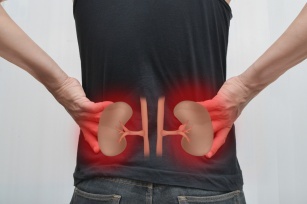
The kidneys are one of the basic organs in the human body, enabling it to function properly. Any symptoms indicating possible problems in this area should be verified as soon as possible through thorough medical diagnostics. If you notice disturbing swelling on your legs, hands or find a problem with urination – both with the frequency of defecation, as well as its quantity and quality, it should arouse your interest and motivate you to go to the doctor. These symptoms may indicate kidney failure – a very serious disease.
Kidney failure – symptoms
The simplest symptoms that indicate a problem with ניר דורכפאַל may indicate that the body is not coping with proper cleansing. The concentration of waste products, toxins and water increases due to insufficient blood purification and water removal. This affects both the direct functioning of the organ and the regulation of the work of other organs. Insufficiency can have a rapid course – then we are dealing with its acute form, and chronic – then it is an irreversible process, ending with a complete loss of functionality of this organ. The symptoms of kidney failure are quite characteristic. Initially, vomiting, diarrhea, bleeding from the gastrointestinal tract will appear. The developing disease will bring further symptoms – frequent urination, swelling of the upper and lower limbs. In addition, water retained in the body causes weight gain. In the case of chronic ניר דורכפאַל there will be a problem with blood pressure, gradual concentration of urine, itching of the skin, swelling of the limbs, visual disturbances, headaches, shortness of breath, hiccups, vomiting. If a patient suffers from glomerulonephritis, he will most likely experience pain in the loin, discolored urine, swelling of other parts of the body. Usually, kidney failure is accompanied by a feeling of constant fatigue, weakness, irritability, impaired concentration, lack of appetite, flaking and itching of the skin.
How to diagnose acute renal failure?
Any abnormalities in the functioning of the kidneys should be checked as soon as possible by going to the doctor. Usually, the starting point is to do a few basic tests: morphology, general urine test, creatinine, urea, glucose level. The final diagnosis in this regard will be made by a nephrologist, who will most likely refer for additional tests showing the details of the structure and functioning of the kidneys. Thanks to this, he will know if there are any distortions, deposits, stones, cysts, tumors. It will be necessary to conduct urography, ultrasound.
Renal failure – treatment
The diagnosed symptoms of a diseased kidney lead to the determination of the treatment path. The main issue that is regulated in such a disease is diet. It is recommended to reject protein in this disease – however, it does not mean completely limiting its consumption, because you can reach for products containing wholesome protein, such as milk and eggs. Another recommendation is to get rid of animal fats from your diet. People with edema should give up salt, canned food, soda, pickles, and smoked products. On the other hand, those whose tests show too high potassium levels must give up tomatoes, bananas, nuts, cocoa, chocolate, meat and vegetable stocks. If someone suffers from uremia, he should give up fish, offal, veal, goose, cereals, wholemeal bread, groats.
Each time, however, composing a diet should be done under the watchful eye of a doctor who will adjust it and the amount of fluid intake to the current condition of the body. The basic principle that should be followed in the preparation of meals is to prepare easily digestible dishes – by avoiding frying, baking, frying. The best solution is to serve steamed or baked dishes in foil.









